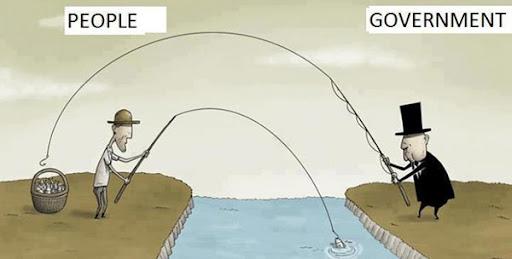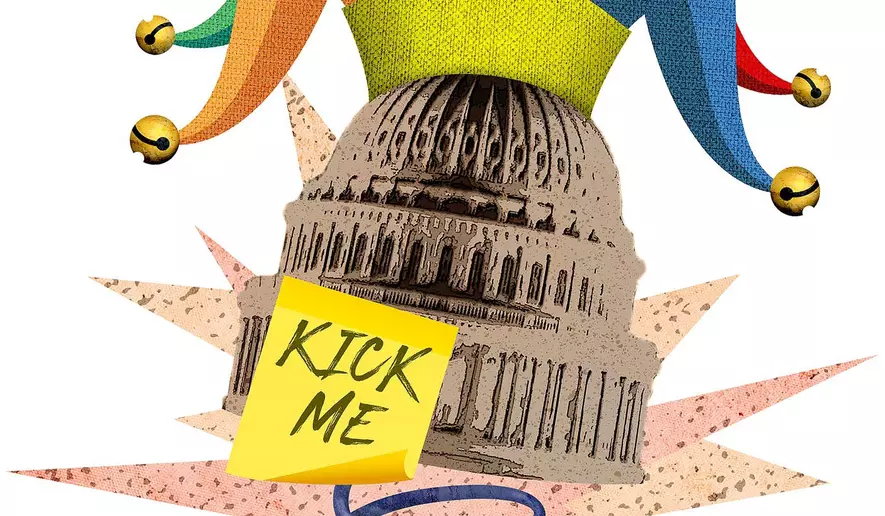Political Satire: How Comedy Is Influencing Public Opinion
In today’s media landscape, comedy and politics often go hand in hand. Political satire, in particular, has become a powerful tool for commenting on the state of the world, especially when it comes to politics. From late-night talk shows to stand-up routines, comedians are using humor to critique politicians, expose corruption, and challenge the status quo. But beyond making us laugh, political satire is shaping public opinion in profound ways. Let’s explore how comedy is influencing political views, why it’s so effective, and the impact it’s having on society.

What Is Political Satire?
Defining Political Satire
Political satire is the use of humor, irony, and exaggeration to criticize or ridicule political figures, policies, and events. It's a genre of comedy that often makes light of serious issues, using wit and sharp observations to highlight flaws, contradictions, and injustices in the political world.
At its core, political satire uses humor as a lens through which we can view political realities. It exaggerates the absurdities of politics, pokes fun at political leaders, and sheds light on issues that might otherwise be ignored. Political satire is often a reflection of public sentiment, providing a space for people to laugh at and critically examine the political system.
The Role of Comedy in Politics
Comedy, especially political satire, often serves as a form of social commentary. Comedians can take complicated political topics and break them down into digestible, humorous segments. By simplifying complex issues, they make politics more accessible and encourage viewers to engage in conversations about important topics.
How Comedy Influences Public Opinion
1. Raising Awareness
One of the most significant ways political satire impacts public opinion is by raising awareness of key political issues. While traditional news outlets focus on facts and analysis, satire brings attention to topics in an engaging and entertaining way. A good political joke or sketch can spotlight a corrupt politician or an unpopular policy, drawing attention to issues that may otherwise be overlooked by mainstream media.
-
Example: The Daily Show For many people, The Daily Show has become a primary source of political information. Host Trevor Noah uses humor to dissect news events, often exposing contradictions and biases in political discourse. By blending comedy with current events, the show encourages viewers to question the actions and statements of political figures.
2. Shaping Attitudes
Political satire also shapes public attitudes toward politicians and political issues. Through repeated exposure to comedic portrayals of political figures, audiences begin to form opinions about them, whether positive or negative. By amplifying the flaws and weaknesses of politicians, satire can turn public figures into caricatures, making them easier to criticize or dismiss.
-
Example: Saturday Night Live (SNL) SNL’s famous political sketches, especially those impersonating high-profile figures like Donald Trump and Hillary Clinton, have had a significant impact on how the public perceives these politicians. Comedic portrayals of their behavior—often exaggerated for effect—can influence viewers’ opinions, reinforcing or challenging existing political narratives.
3. Encouraging Political Engagement
While many people find politics to be boring or overwhelming, comedy can make it more approachable. Political satire often serves as a gateway to deeper engagement with politics. When a comedian makes a joke about an important issue, viewers may be motivated to learn more about it, sparking discussions and debates that they might not have had otherwise. In this way, satire can encourage audiences to stay informed and involved in political matters.
-
Example: John Oliver’s Last Week Tonight John Oliver’s show is a great example of how comedy can encourage political engagement. Oliver takes a deep dive into serious political topics, such as campaign finance or net neutrality, and presents them in a humorous, digestible format. His ability to mix humor with information has not only informed audiences but also inspired action. His segments have led to real-world impacts, such as increased public support for certain policies and greater public pressure on lawmakers.
Why Comedy Works So Well in Politics
1. Humor Breaks Down Barriers
Politics can be intimidating, and many people avoid engaging with it because it feels too complex or divisive. Comedy, however, has the power to break down these barriers. By laughing at the absurdities of the political system, comedy makes political issues feel more approachable and less intimidating. Humor also allows comedians to talk about sensitive topics in a way that disarms the audience, making them more receptive to new ideas or criticisms.
2. Exposing Hypocrisy
Political satire is particularly effective at highlighting the hypocrisy of politicians. Comedians are skilled at pointing out contradictions between what politicians say and what they do. This ability to expose hypocrisy resonates with the public, as many people are frustrated by politicians who appear to act in their own self-interest while claiming to represent the people.
-
Example: Colbert Report Stephen Colbert’s satirical portrayal of a conservative pundit on The Colbert Report was a masterclass in exposing hypocrisy. Through his exaggerated persona, Colbert was able to mock conservative talking points and reveal the flaws in certain political ideologies, all while making audiences laugh.
3. Creating Shared Understanding
Political satire creates a shared understanding among audiences, especially in polarized times. When a comedian points out the ridiculousness of a political situation, it can serve as a unifying force, allowing people from different political backgrounds to laugh at the same joke. In this way, satire can transcend political divides and bring people together over a common sense of humor about politics.
The Impact of Political Satire on Society
1. Shaping Political Discourse
Political satire plays an important role in shaping political discourse by providing an alternative voice to traditional news outlets. Through their comedic approach, satirists challenge the mainstream narrative, question political assumptions, and hold power to account. This process helps create a more informed, critical public that is less likely to accept things at face value.
-
Example: The Borowitz Report (The New Yorker) Andy Borowitz’s satirical news articles often take aim at political figures and current events, offering a humorous yet insightful commentary on the state of politics. His pieces highlight absurdities in the political system and make readers think critically about the world around them.
2. Encouraging Accountability
Comedians often use their platform to call out politicians for their actions and hold them accountable for their words and deeds. This can help keep politicians in check by ensuring their behavior is scrutinized in the public eye. Through satire, politicians are forced to confront their own flaws and shortcomings, which can lead to greater accountability in the political process.

3. Fostering Social Movements
Political satire has historically played a role in social movements, amplifying messages of change and resistance. Comedians use their platforms to mock oppressive systems, draw attention to injustices, and support causes that challenge the status quo. In doing so, satire helps create a cultural atmosphere where social change feels possible and necessary.
-
Example: The Daily Show during the Trump Administration During Donald Trump’s presidency, The Daily Show played an important role in satirizing the administration’s policies, behavior, and rhetoric. The show’s sharp political commentary helped fuel conversations about the need for resistance and activism, particularly among younger audiences.
The Future of Political Satire
As technology and social media continue to evolve, political satire is likely to grow in influence. Social platforms like Twitter, YouTube, and Instagram provide comedians with more ways to reach their audiences instantly, and this new era of digital satire is making it easier for people to engage with political commentary. As the political landscape becomes more polarized, we can expect political satire to play an increasingly important role in shaping public opinion, holding politicians accountable, and fostering meaningful political conversations.
Conclusion
Political satire has proven to be an effective and influential tool in shaping public opinion. By using humor to dissect political issues, highlight hypocrisy, and expose flaws in the system, comedy helps make politics more accessible and relatable. Satirists challenge political narratives, encourage critical thinking, and inspire audiences to stay engaged. As long as politicians remain the subject of scrutiny and public debate, political satire will continue to thrive as a powerful force in modern society.












